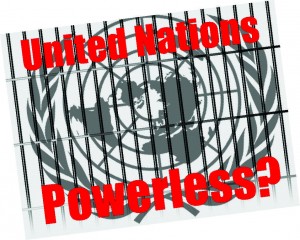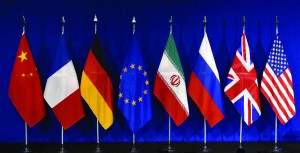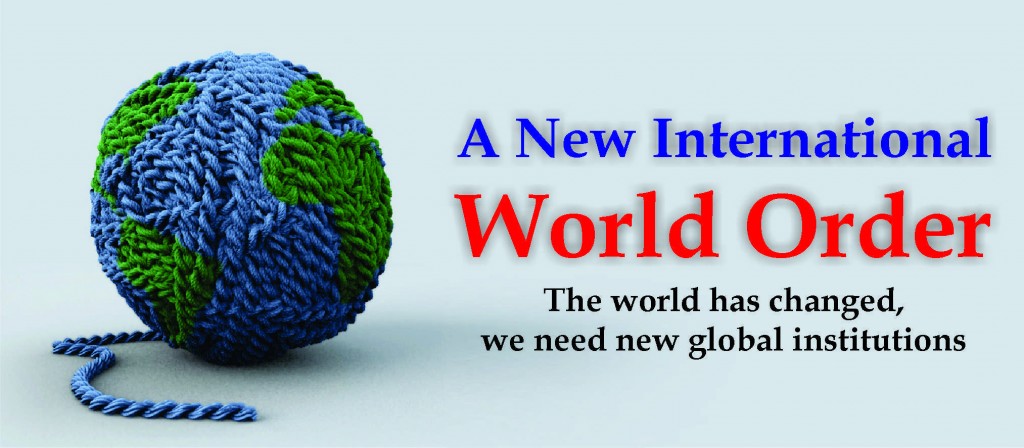A New International World Order
At the present time, it seems outrageous to speak out on behalf of a new multilateral institution. The current trend is moving in the opposite direction, with so-called “strong men” around the world propagating a return to the rule of the strong over the weak. To these populists, this means that international rules-based agreements, as well as the institutions that uphold and enhance them, have become obsolete. The so-called ‘elite’, in turn, paralyzes the institutions through stagnation and thus indirectly underpins the populists’ assertion that these multilateral institutions are of no use to “average people.”
The European Union is being weakened by political forces driving the alliance’s demise from within, for example from within Parliament. NATO, too, is in crisis. French President Emmanuel Macron diagnosed it as suffering from “brain death”; he was vehemently contradicted. But the conflict has revealed a lack of agreement about the present and future of the defence alliance. Both confederations, NATO and the EU, were created during the Cold War. They reflect the spirit and conflict of that time in their structure and in the narrative that holds them and their members together.
The United Nations has also been affected by the end of the bipolar world. The current dividing lines no longer run between the free and communist worlds, but between countries whose order is based on the recognition of human rights and those in which these same human rights are constantly being trampled on. Currently, there are three countries that can accurately be described as part of the central system of world power – the United States of America, the Russian Federation and the Peoples Republic of China, three of the five Permanent members of the UN Security Council. In this global assembly, a country having a veto power in the UN Security Council can torpedo every constructive idea and demoralize all other actors who want to work well in the long term.
These three great powers are engaged in a conventional Westphalian contest for power and influence in which formal institutions are of minimal importance, and informal institutions are difficult to maintain. Meanwhile, in other parts of the world, the attempt is made to move beyond the rule-based version of Westphalia that was set out in 1919 and has developed over the past 100 years to create a world that is more highly institutionalised, a world that could be termed an embryonic global polity.
This global polity builds on the expansion of international organisations that took place post-1945, in particular is based on an expanding international human rights regime, the development of international criminal law, and a commitment to cooperative solutions to common problems such as environmental degradation. In this world, sovereignty is redefined in terms of responsibility and a general responsibility to protect (R2P) is widely accepted. Looking at institutions in a formal, organisational sense, the European Union and the wider system of cooperation is at the heart of the global polity, but democratic governments in the Commonwealth, in South and Central America and in Africa are part of this world via their membership of bodies such as the International Criminal Court. Although Europe is at the heart of this world, and the European belief that all problems can be resolved via cooperative institutions is central, it is worth noting that some of the most powerful advocates of notions such as sovereignty as responsibility have been Africans, most obviously former UN Secretary General Kofi Annan and UN bureaucrat and later South Sudanese Ambassador Francis Deng.
In many respects, this emerging global polity reflects the hopes of 1919 rather more accurately than institutions such as the League of Nations and the United Nations have done. The underlying assumption of this world, as in 1919, is that liberal democratic government is the norm and, echoing, but usually not referencing, the ‘democratic peace’ literature, that democracies will handle their common problems by pooling sovereignty and cooperating rather than by violence. This is meant to be a world governed by Law, not War. The extent of the world of the emerging global polity is not universal; apart from the three major powers, a number of other important countries in the non-Western world, such as India, Pakistan and Indonesia, remain committed to conventional views of sovereignty and are suspicious of R2P and the ICC, but the hope of advocates of the global polity has been that eventually these countries, and indeed the three great powers themselves, will come to see the wisdom of more extensive cooperation to solve global problems.
What we need today is a new institution, a union of all democracies that are already called “like-minded countries” in diplomacy, but which so far lack an official home base.
The people of Germany, Canada, New Zealand, South Korea, Mongolia, Uruguay and South Africa have more commonalities than differences between them. Their nation states rely on the recognition of human rights and on a legal system that is built on these rights. The legitimacy of these states is based precisely on this recognition of human freedom and its integrity. It is reflected in the view that everyone has civil and social rights.
Nationalists, who lament the loss of sovereignty, are getting it wrong. The subject of every constitution is the individual human being. In the liberal world order that we live in today, individual sovereignty has increased to an extent that our ancestors could not have imagined. As an association of nation states, the EU in particular makes clear what is possible if laws built on a shared foundation and human rights recognized over time are harmonized. It is precisely the national characteristics, language, culture, religion and the way of life that do not fall by the wayside, but can exist on an equal footing with others and actually enrich coexistence. It is perhaps the greatest lie of the vociferous Brexit supporters to claim that the break with the EU brings sovereignty back to the citizens of the United Kingdom. The opposite is the case: Many of their freedoms will be restricted again by their withdrawal.
So, in this context, it is important to maintain contact and dialogue with countries, e.g. Russia, Turkey and the People’s Republic of China that do not recognize human rights and consequently torment their citizens. In the end, this contact over a long period of time will serve to free the people in autocracies from the dark fist of their tormentors. The best way to achieve this is for democratic countries to have the best possible relations with one another, to learn from each other and, as an example, to convince others. It is time for such an institution. It is actually disastrous that it does not already exist.
 Jahangir's World Times First Comprehensive Magazine for students/teachers of competitive exams and general readers as well.
Jahangir's World Times First Comprehensive Magazine for students/teachers of competitive exams and general readers as well.



